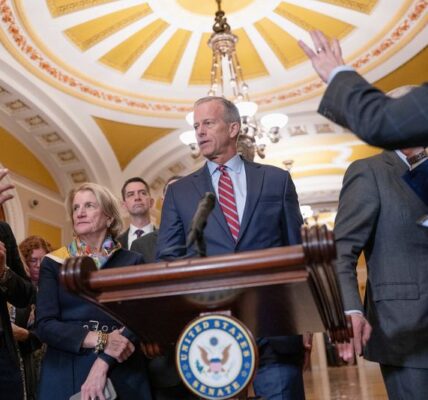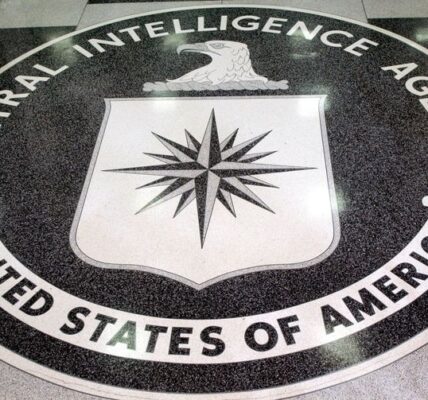A federal judge instructed the Trump administration on Wednesday to detail the legal precedent for its plan to deport Mahmoud Khalil, a Palestinian activist whose presence in the country the government alleges could harm U.S. foreign policy interests.
District Court Judge Michael Farbiarz in Newark, New Jersey, ordered the administration to supply a catalog of every case in which U.S. officials have employed the law being used against Khalil, a Columbia University graduate student.
The judge asked to know specifics behind U.S. Secretary of State Marco Rubio’s determination of the risks posed by Khalil’s presence in the U.S. He gave the government until 9:30 a.m. ET (1330 GMT) on Thursday to respond.
The Department of Justice did not immediately respond to a request for comment.
Khalil was arrested in March at his apartment building in New York City in the presence of his wife, a U.S. citizen. Khalil became a permanent U.S. resident last year and has been detained without charges since his arrest.
The administration is seeking to deport Khalil under a section of immigration law that allows for the deportation of “an alien whose presence or activities in the United States the Secretary of State has reasonable ground to believe would have potentially serious adverse foreign policy consequences.”
Trump administration officials have said student visa and green card holders are subject to deportation over their support for Palestinians and criticism of Israel’s conduct in the war in Gaza, calling their actions a threat to U.S. foreign policy.
The administration suffered a setback last month when a federal judge in Vermont ordered another Columbia University student, Mohsen Mahdawi, released on bail.
In April, an immigration judge in Louisiana ruled that the government could deport Khalil solely on the basis of an undated two-page memorandum by Rubio determining that Khalil’s presence could have adverse impacts on U.S. foreign policy interests.
Rubio wrote that Khalil should be removed for his role in “antisemitic protests and disruptive activities, which fosters a hostile environment for Jewish students in the United States.”
Khalil’s attorneys have countered that events and their impact on New York City are not within the scope of U.S. foreign policy. They submitted to the immigration court interviews of Khalil by CNN and other news outlets in which he denounces antisemitism.
Farbiarz has blocked Khalil’s removal while considering the student’s claim his arrest violated the U.S. Constitution’s freedom of speech protections.
Legal experts have said there is little precedent for using the law in the way it has been used against Khalil. It appeared to have been tested just once in the courts after it was used in 1995 to detain Mario Ruiz Massieu, a former assistant attorney general of Mexico.
Massieu challenged his detention in a case that was overseen by the late federal Judge Maryanne Trump Barry, President Donald Trump’s older sister. She found the law unconstitutional, but her ruling was reversed on appeal on a technicality.
Khalil was born in a Palestinian refugee camp in Syria, holds Algerian citizenship and became a lawful permanent U.S. resident last year.
Please like, comment, and share this article if you found it helpful and
informative.
For more news check out Big Town Bulletin News
For more from Big Town Bulletin check out Big Town Bulletin


